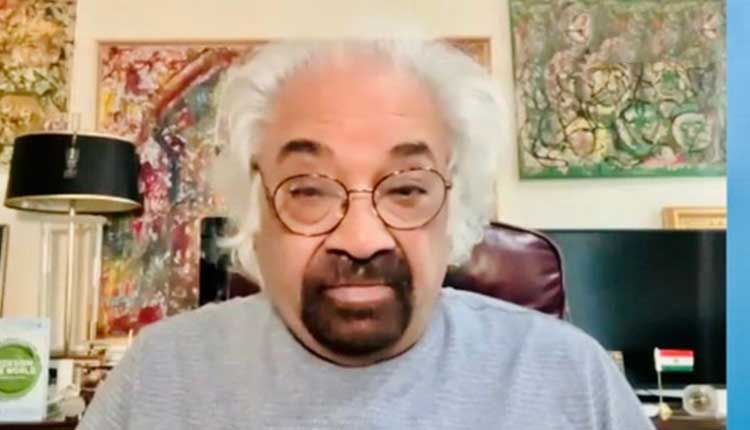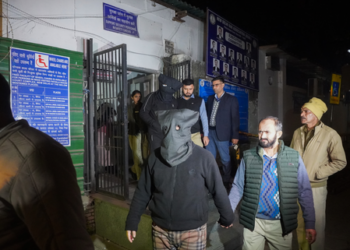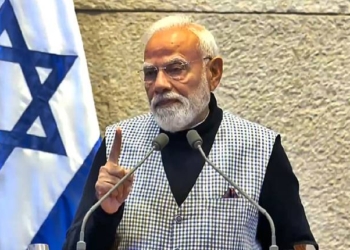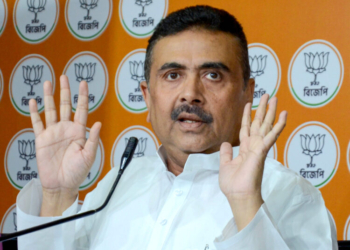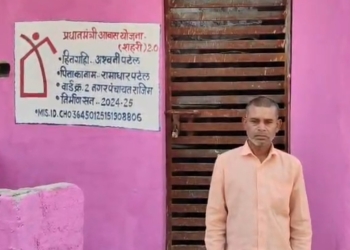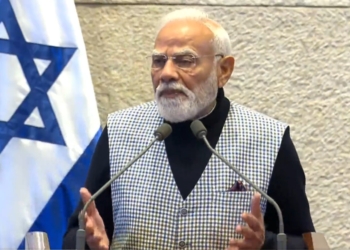Chennai: Sam Pitroda, considered the father of Indian telecom revolution, and a close confidant of Nehru-Gandhi family, has said that Congress’ idea of India is different than that of BJP’s.
US-based Pitroda, who has been an advisor to Rajiv Gandhi and Manmohan Singh when they were Prime Ministers, feels that in the Lok Sabha elections next year, if 60 per cent of the votes don’t get divided, the results can be different.
In an interview with IANS, Pitroda, who is considered one of the major advisors to Rahul Gandhi, also spoke about the difference between Rajiv Gandhi and Rahul Gandhi’s style of working and how he was instrumental in bringing the telecom revolution in India where he credits former Prime Minister Rajiv Gandhi for clearing all the bureaucratic hurdles.
He also talked in detail about the sacrifices made by the Nehru-Gandhi family for the country.
Here are some excerpts from the interview:
IANS: You are considered as the father of India’s telecom revolution. How do you view it?
Pitroda: No, I don’t think I shall take all the credit. A lot of people have helped us to reach this stage. The first credit must go to Rajiv Gandhi who gave us political support. Then a lot of young talent in India worked hard and gave their best. Without good human resources and the domain experts nothing is possible. You look at Chandrayaan today. What we have accomplished has a lot to do with the kind of human resource India has been able to build over a period of time. So, the ultimate credit goes to a lot of people who work on a project.
IANS: But you initiated India’s telecom revolution?
Pitroda: True. I was lucky to have a vision which was supported by a prime minister and young talent joined us, a lot of things came together. If you take any of our major programs in India like space, milk revolution, or the agricultural revolution all these programs require political will, domain experts and a large number of professionals. Nothing happens overnight and such programmes take years to get completed.
IANS: During that era, you had come to India from Chicago and it was difficult to communicate back to Chicago. How was the experience?
Pitroda: There are very few people who remember such things. The new generation has no idea that it used to take 10 years to get a telephone connection. We used to have a lightning call, which cost eight times more than the ordinary call and we had to go through an operator. I remember the first phone call I ever made from the US to India, it took four hours to wait and at the end you could hardly hear anything.
In 1981, we had only two million telephones for 750 million people. We now have over 1.5 billion phones and everyone has a smartphone. In addition, we generate 200 billion dollar worth of software service export business every year. I think IT and telecom have changed the face of India. It has provided millions of our young an earning opportunity. A lot of poor families have been lifted out of poverty because of these young people.
The 25 year old young boy in software made more money than his father ever did. We are well recognised as the global leader in IT. Wherever you go, people will say ‘Oh Indians, the IT wizards’. Indians now run some of the largest IT companies in the world like Google, Microsoft, IBM, and Adobe. It’s a matter of great pride for all of us. Today, we have a huge amount of foreign exchange surplus mainly because of IT. However, we have not used IT effectively yet to change the lives of the 400 million people who are below the poverty line. We haven’t used IT effectively to improve health delivery, our education system, for our farmers yet. So we have a long way to go.
IANS: Is lack of political will a reason for IT not recognising its full potential in India?
Pitroda: There are a lot of issues. One is the vision. Because people want to really copy what the West does. When we started CDOT, we did exactly the opposite to what the West was doing. The Western world was then focused on urban communication but our focus was on rural communication. The West was focused on improving telephone density but we tried to improve access to telephones.
The West was interested in importing equipment into the developing world and we said no to it and will build our own equipment and human resource. So, we were doing exactly the opposite. And that’s what it takes to plant the right seeds. This requires courage. We don’t show the same courage to take risks, to use IT to improve our education system. How can we do it if your education ministry is more focused on changing textbooks, changing history, renaming cities, and promoting Hindutva.
Then you lose focus of the main goal because technology holds the key to the future. Future belongs to science and technology. Future doesn’t belong to history. Future doesn’t belong to temples. I keep saying that and people don’t like this when I say temples will not create jobs. So somebody will come and say, but there is a job for ‘Pujari’ (priest). It’s just a lame argument. We will need to provide employment to our young generation in future and this can be only achieved by focusing on technology. Look at what is going to happen with Artificial Intelligence (AI). It is going to change everything around us.
IANS: In a recent incident in Kerala, a person was cheated using AI technology by morphing a friend’s face and voice in video call and money was siphoned off. Is AI turning its evil face on people?
Pitroda: It is not only AI but take a look at social media. It is used to promote hate and lies because there is no authenticated behavior. You can have Sam Pitroda seven times and you don’t know which one is real Pitroda. There is a very serious problem in the way we use some of these technologies. It is like a knife. Knife cuts fruits but at the same time knife can also kill. We are using technology which is always not good for the people. We always misuse some part of it.
This where the regulations and government intervention comes into play. But if the government wants to support those people who spread hate on social media, what can you do? If the government wants to support misinformation and lies, one cannot help it. We will have to learn to use technology effectively to take humanity to the next level and not bring in the worst in humanity to create more fights which is a challenge for all of us.
IANS: Did Rajiv Gandhi get the recognition he deserved for the works he did for the country?
Pitroda: It all depends on how you look at it. People who know and understand appreciate what he has done for the country. Then there are also people who peddle lies and say that Rajiv Gandhi didn’t do anything for the country. You don’t do work to take credit. You work because it needs to be done. You do it to get glory because glory doesn’t last. We all die at the end and everyone forgets.
You do it because it has to be done. It is about serving people. It is like our ‘Karma’. One should not worry what others say. Critics don’t matter. Rajiv did his part. Actually, he has done more than what he could do. But Rajiv’s dream is still unfulfilled — his dream to take India into the 21st century with dignity and respect is still in process. It requires a focus on democracy, which I am worried is lost now.
It requires independent history, the role of civil society, and free judiciary. Collaboration and cooperation between all communities of all races, religions, and languages is needed. One must respect the other for what he or she is and not worry about what his or her religion is. One should not worry about the different languages people speak. It is fine and I love it. In fact, if you are not different, how can I get to eat South Indian food? I have to enjoy the diversity and not look for uniformity.
This is what the idea of India is all about. India is all about diversity, about different groups of people carrying on different conversations. And we need the ability to listen to them. Presently, this is being affected. It bothers me.
IANS: Do you feel that there is polarised politics in India and that politics is winning back to back in electoral hustings?
Pitroda: I think this is a challenge world over right now and not only in India. Polarised politics, authoritarian regime, manipulation of media, propagation of lies and hate has become a global challenge. Bad actors have taken over all over the world. You cannot build peace and prosperity by dividing people. You have to say India is for everybody and everybody should have the same rights.
There is no concept of second class citizens. This is the difference between the Congress’ idea of India and BJP’s idea of India. Congress’ idea of India is embedded in our Constitution. We don’t treat our Dalits and OBCs properly. We don’t treat our 200 million Muslims properly. It is a concern for everyone and should also be the real concern for the majority. Today, election victories decide the destiny of a country even if you have 40 per cent Hindu voters and 60 per cent secular voters.
The 60 per cent secular voters get divided in multiple parties and it is the Hindu vote which finally decides. It is no sense means they have to build a Hindu nation. They have to first look at the Constitution. I’m not a political person and don’t want to comment too much on politics.
But as an ordinary citizen, I want peace and harmony with all communities. I respect my Muslim brother. I respect my Christian brother. I respect my Buddhist brother. I respect my Jewish brother. I have no issues with any of them. Same way I respect people from Kerala, Assam, Orissa, Gujarat, and Uttar Pradesh (UP). They are all great people. They all have good and bad like we all have. Take them what they are, love them, respect them, and work with them. Then only there will be peace and prosperity for all of us.
IANS: Recently, there was controversy regarding Rahul Gandhi speaking in London about Indian democracy and seeking help from people of other countries to intervene.
Pitroda: People twist facts. Even this interview that you and I are having can be twisted in many ways. It depends on what you want to see. If you have a twisted mind, you will see twisted agendas but if you are honest, fair, simple, and true then you will tell the truth only. Rahul Gandhi basically said and always says it and I believe in it, that Indian democracy is a larger global public good.
It is the largest democracy in the world and if our democracy goes bad or rogue, the world will pay for it. So, it is in the global interest to pay attention to what is happening in India. It doesn’t mean you are seeking somebody to come and help us.
It doesn’t mean that you are criticising Indians or its heritage. You are criticising the Indian government. The Indian government is not India. India is much bigger. Nobody can criticise India. India is what India is. But people get insulted because their self-esteem is very fragile. So, you have to do what you have to do and they have to do what they have to do.
IANS: People are now taking Rahul Gandhi very seriously. Have you played any role in it?
Pitroda: No, I haven’t played any role except I love him. I care for him. I like him. Maybe, I am biased but I only see good in him. I think he is intelligent. I think he is a serious reader. He is a thinker. He is a good looking young man. He keeps his body in shape. And you know he has a larger public interest at heart. He is concerned about India’s future. He is concerned about India’s poor and her minorities.
So, he is a threat for the people in power. They want to spend crores and crores to destroy his image which is understandable. I wouldn’t do such a thing and will not use public money for it. It is dishonesty. But then if they consider it fair, I am really no one to argue with them. I would not spend one rupee of public money to discredit anybody, not even my enemy because it is not ethical. But their ethics are very different from mine.
The strategy they have used is to discredit Rahul Gandhi and the Congress. When the Prime Minister says that has been done in India for 70 years — it is a lie. How can one lie like this? It is discrediting people of India by saying that for the last 70 years everybody was sleeping. We got a lot of things done in the last 70 years. Of course we could have done more and of course we made mistakes. Of course, we are not very happy with everything that we have done.
But then also look at all the good we have done. Going back to your original question, I am glad that people are beginning to know Rahul Gandhi. I think ‘Padhyatra’ (Bharat Jodo Yatra) helped him a lot and got to know him more from close quarters. I am delighted that people of India are finally beginning to understand who the right person is. What DNA Rahul has and what is his commitment to a larger cause of India.
IANS: You have worked closely with Rajiv Gandhi. You are considered to be close to Rahul Gandhi also. How different is the son from his father?
Pitroda: I think the basic DNA is intact. From Nehru to Indira Gandhi; Rajiv Gandhi to Rahul Gandhi; or whosoever will be their next generation. The family has made a lot of sacrifices for India. Of course, they are privileged. You can’t take it away from them. You know, they have a background in education from Motilal Nehru’s time. He was a great lawyer. He was rich. He had palatial homes in Allahabad.
You can’t take it away from them. They have also lost two major family members as well in a very bad way while working for the nation. Their sacrifices are unimaginable. One must respect the family for their sacrifices. So, Rahul Gandhi has a great background and DNA. However, this background also brings baggage with it like you don’t live a normal life like we all do.
Rahul Gandhi can’t just walk on the street and do whatever he wants. Even during his childhood he couldn’t do whatever he wished. He comes from a great family with great DNS, he brings in values honesty, truth, trust, ethics, sincerity, openness, concern for poor, minority and concern for global good. This is something he doesn’t talk about. The Rajiv Gandhi era was different from the Rahul Gandhi era.
The Rajiv Gandhi era didn’t had privatisation, or technology. Rahul Gandhi’s era is different where India’s population has reached 1.5 billion people; a country where privatization has taken roots; a country that is growing very fast after 1991 liberalisation. Both operated in different ears. However, the overall agenda of the Rajiv Gandhi era is still unfinished.
IANS: You keep on repeating that Rajiv Gandhi’s agenda remains unfinished even after the Chandrayaan-3 successful mission?
Pitroda: I am very proud of Chandrayan-3 success. But we still have to lift 400 million out of poverty; eliminate caste; and learn to respect our minorities. We have not achieved all these things yet. After we are able to empower our women, give them respect, safety and security, I can say Rajiv’s dream and work has been completed.
INAS: There are rumours that Stephanie Cutter, advisor to former US president Barak Obama, is being roped in by Congress, specifically by you, for Rahul Gandhi’s media management.
Pitroda: These rumours are completely bogus, and false. It is a total lie.
IANS: Rahul Gandhi has changed a lot. He is showing maturity. His approach, speeches and body language has completely changed. How did it happen?
Pitroda: Bharat Jodo Yatra, his international interactions and talking to different people have changed him. All this is his own creation. It is not that some lady who held public relations for Obama has taught Rahul Gandhi anything. This is what Indians do. They lie. And the media promotes such lies.
IANS: In 2019, Congress only won 52 seats. Think tanks and pollsters say that there will only be a slight improvement in Congress fortunes in the 2024 Lok Sabha election. Your comments?
Pitroda: It does not matter what the think tank or people say. Only peoples’ votes matter. If elections are fair — which is a big ‘if’ I have my doubts and concerns; however, I can’t prove anything. If elections are fair and if 60 per cent of the votes don’t get divided into multiple candidates, I think you will see different results. If 60 per cent of the votes get divided in multiple parties and elections, then the results will be different.
IANS: Do you indicate we revert back to paper ballot?
Pitroda: No, I didn’t mean that. We need a printer in the EVM that will keep paper readable for five years and the receipt to be dropped in a box and be counted as a vote. It is different from paper ballots and the ballot will still be in an EVM machine and the paper receipt is verification.
IANS: But Congress and other opposition parties are winning state elections for example in Karnataka in 2023.
Pitroda: What is the problem with incorporating these ideas so that things are transparent and true? People across the globe will understand that Indian elections are transparent and fair and for that we have to adopt such methods.
IANS: You and your brother went to boarding school Sarda Vidya Mandir in Gujarat. Please tell us about that experience?
Pitroda: I along with my elder brother were sent to the Sardar Vidya Mandir School in Gujarat which functions on Gandhian ideology. My father sent us to this school which was around 1,000 km from our home in Odisha. We were too young. However, schooling was my turning point in life as I found Mahatma Gandhi and his ideals will carry this world forward. We could interact with students from several places, lived the disciplined life in a school hostel and learned about time management, secularism, caring for others and whatever I have in life were imbibed from that school education.
My father was not an educated person and still he sent us to that school just because he wanted us to imbibe Gandhian culture and values. My father was highly enthused at our country getting independence and he was very much happy that we need not prostrate before foreigners. We could meet our parents only once in six months.




